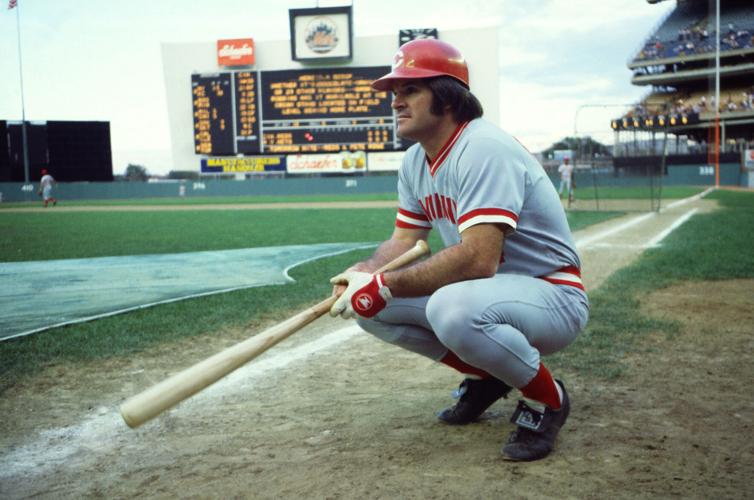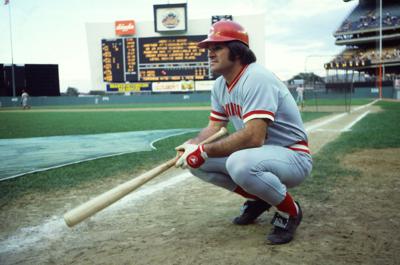There is a point in life where you realize, in a piece or all at once, how rotten things are. On Tuesday the feckless commissioner of Major League Baseball, Rob Manfred, announced Pete Roseās permanent ban was not, in the strictest sense, permanent. For that matter, Shoeless Joe Jackson and several other members of the disgraced 1919 Chicago White Sox were made eligible for Hall of Fame consideration, too. It was, above all, a transparently pathetic display.
āObviously, a person who is no longer with us cannot represent a threat to the integrity of the game,ā said Manfred in a letter released by MLB. āMoreover, it is hard to conceive of a penalty that has more deterrent effect than one that lasts a lifetime with no reprieve. Therefore, we have concluded that permanent ineligibility ends upon the passing of the disciplined individual, and Mr. Rose will be removed from the permanently ineligible list.ā
It is quite a thing to decide āpermanentlyā means ālifetime,ā but that kind of shameless retconning of language is commonplace these days. Rose died last year at age 83, after a sour, dissolute life. He finished with the most hits in MLB history, but was permanently banned in 1989 for gambling on baseball as a player and later as a manager for the Cincinnati Reds. Rose spent the rest of his days signing merchandise, with his characteristic coarseness, and asking to be let back into the game.
And MLB let him back in, a little bit at a time: an appearance on the field, analysis on Fox, a jersey retirement in Cincinnati. But never all the way.
And in his continued banishment, Rose served as a warning against the idea of gambling not just in baseball, but in pro sports. The 1919 White Sox threw the World Series (against the Reds, as it happened) but, even with the film āEight Men Out,āĀ receded so far into the past that Rose’s penalty became the face of protecting, as then-MLB commissioner Bart Giamatti put it, the integrity of the game.
Pete Rose and Shoeless Joe Jackson were reinstated by baseball Commissioner Rob Manfred on Tuesday, making both eligible for the sportās Hall of Fame after their careers were tarnished by gambling scandals. (AP Video / May 13, 2025)
And yes, of course things have changed: the U.S. Supreme Court struck down the American prohibition of sports gambling in 2018, Canada passed legislation legalizing it in 2021, and every sports league rushed to embrace the dirty money like they were Scrooge McDuck swan-diving into his vault. The list of gambling scandals has predictably grown across sports. Itās quite a listĀ when you put it together. The argument is that itās easier to catch violators in a regulated environment, which ignores the fact that there remains an unregulated one, but with a whole lot more societal encouragement for the act.
But none of that changes what Rose did, or the context in which he did it. Or what the Black Sox did, either. They knew the rules. They corroded the integrity of the game. It would be the same today if a player or manager ā or translator ā bet on games in which they were involved. And given how easy it is to gamble on sports now, you could argue a commissioner with any competence would keep Rose out of the game as if he was a head on a pike, as a warning to the others.
- Bruce Arthur
This is a time of vice and wickedness, however, and a time of freedom from consequences for bad behaviour. It’s also a time of compliance, for some. The American government is making flying more dangerous, education more stupid, health more precarious, scams more rewarding and corruption more common. Manfred, notably, met with U.S. President Donald Trump on April 17.Ā After Roseās death, Trump brayed that Rose should get a complete pardon. Trumpās brain is stuck in the 1980s in many respects, but he also is attracted to anti-virtue like a fly to feces. To Trump, Roseās banishment stunk.
So with Roseās daughter and lawyer also asking, Manfred disgraced himself and baseball. He didnāt have to, but then sometimes there is merchandise to sell.
Now, whether Rose gets into the Hall of Fame isnāt up to Manfred. It will likely be voted on by the 16-person classic baseball era committee when they next meet in December of 2027Ā āĀ a mix of writers, former players, historians and front-office executives āĀ and Rose just needs 12. It will be a different route than the one that has kept the gameās all-time home run leader (Barry Bonds), its all-time leader in Cy Young trophies (Roger Clemens) and players from Alex Rodriguez to Mark McGwire out of the Hall. It might be easier.
And you can argue the steroid era should be in the Hall, with an exhibit detailing the ugly, thrilling course of that time in the gameĀ ā you can argue Rose is the same. Maybe it will even happen. Or maybe Rose and Jackson will get in and their mistakes will be softened and erased because baseball, far from being a timeless game, has embraced modernity. It has opened the door to no standards at all.

































To join the conversation set a first and last name in your user profile.
Sign in or register for free to join the Conversation